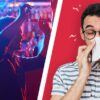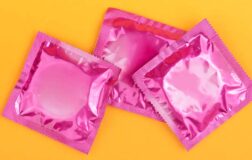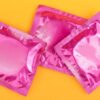How to protect your drink from being spiked
Worried about your drink getting spiked on a night out? We show you how to keep your drink safe and the symptoms to look out for if you think you might have been spiked.
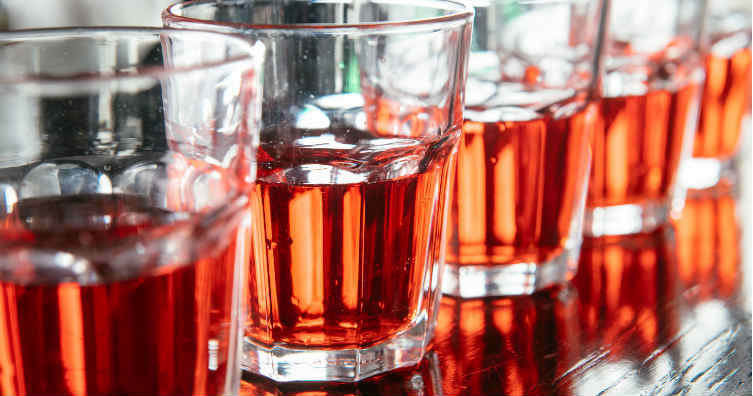
Credit: Just Life – Shutterstock
Nights out are a big part of university life for many students. But when it comes to things like spiked drinks, it's important to stay vigilant so you can still go out and have a good time while keeping yourself safe.
Many students don't know how to distinguish getting drunk from the symptoms of consuming a spiked drink. We'll show you what to watch out for, tips on how to stay safe and where to turn if you need help.
What’s in this guide?
What is drink spiking?
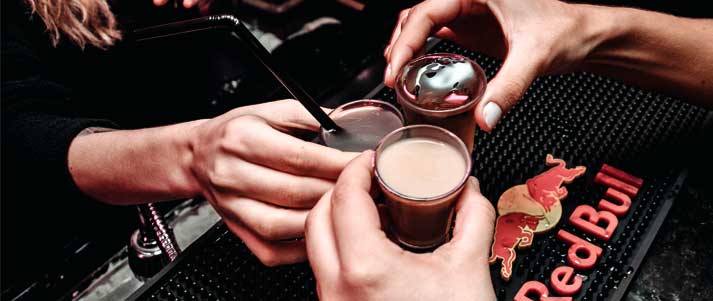
Drink spiking is when someone adds alcohol or drugs to a person's drink without them knowing. Sometimes it is done to cause distress or embarrassment to someone, but sometimes it is used with the intention of stealing from or sexually assaulting the victim.
Alcohol is most commonly used to spike drinks, either by adding some to a non-alcoholic drink or adding double instead of single measures.
Drugs used to spike drinks are often called 'date rape drugs' but aren't always used for sexual assault.
Drugs used to spike drinks
- Gamma-hydroxybutyrate (GHB)
- Tranquillisers (most often benzodiazepines such as Valium, also known as diazepam)
- Rohypnol
- Ketamine.
These can come in powder, tablet or liquid form, and don't always have a noticeable taste or smell.
Every year, hundreds of people have their drinks spiked, but many instances go unreported as victims are embarrassed, afraid of speaking out or didn't even realise they were spiked. Many people often think they were just very drunk.
Symptoms of drink spiking
The symptoms of the drugs listed above usually kick in within 30 minutes and last for a few hours. The problem is that many of the symptoms are similar to what you would experience if you were drunk, which makes it hard for you, and others, to spot that anything is wrong.
Signs you've been spiked
According to the NHS, the symptoms of having your drink spiked are:
- Lowered inhibitions
- Difficulty concentrating or speaking
- Loss of balance and finding it hard to move
- Visual problems, particularly blurred vision
- Memory loss (amnesia) or 'blackouts'
- Feeling confused or disorientated, particularly after waking up (if you have been asleep)
- Paranoia (a feeling of fear or distrust of others)
- Hallucinations (seeing, hearing or touching things that aren't there) or having an 'out of body experience'
- Nausea and vomiting
- Unconsciousness.
Ways to prevent your drink being spiked
Here is how you can keep your drink safe and avoid being spiked on a night out:
-
Go to the bar with a friend
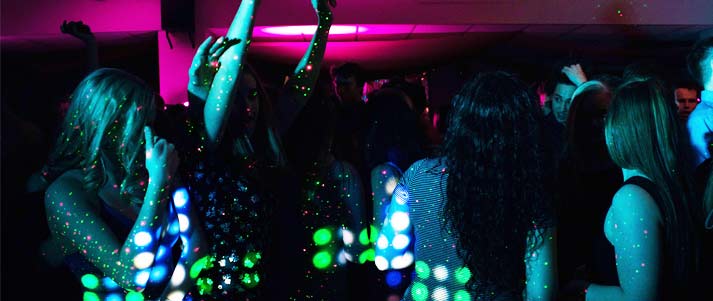
Always go up to the bar with at least one other person when getting another drink: if you're by yourself, it's easy to be distracted (even for a few seconds) and for someone to take advantage of that.
For instance, you might have to move away from your drinks to reach the card machine to pay up. If you're with a mate, they can act as an extra set of eyes and guard your drinks when you're doing something else.
If you're getting a round of drinks in and can't carry them all at once, do not leave any on the bar while you make a couple of trips. Call or message a friend and get them to come and help you out.
-
Cover your drink
It depends on what you're drinking as to how easy this is, but if you can, always opt for a bottle rather than a glass. You can easily keep your thumb over the top to stop someone from slipping something in. If you are drinking from a glass, you can hold it from the top rather than the side.
You can also buy devices, like these bottle stoppers, which secure the top of bottles so you don't even have to think about it. Some bars, particularly student unions, even provide them for free – just ask the bar staff.
Avoid punch bowls and jugs of cocktails where you can, as these are probably the easiest targets for drink spiking.
-
Don't accept drinks from strangers
Don't accept drinks from strangers. Even if someone you know or trust offers to buy you one, always go to the bar with them and watch it being made so you're confident it hasn't been tampered with before you get your hands on it.
Buy your own drinks as much as you can and even be wary about taking a sip of someone's drink if you don't know what's in it.
-
Never leave your drink unattended
It's almost impossible to time your drinks, toilet breaks and trips to the smoking area (where you often can't take your drink) perfectly so that you don't need to leave your drink behind, but try to avoid this as much as possible.
Even if you leave your glass on a table with a bunch of friends, the chances are they're not going to be paying super close attention. It's much safer to finish up your drink before going anywhere.
That being said, don't go crazy and down a double vodka coke just so you don't have to leave it behind. Be sensible and try to go to the smoking area or toilet before you get another drink.
-
Watch out for changes to your drink

Credit: KOHUKU – Shutterstock
If you do happen to leave your drink unattended or let it slip out of your sight for a moment, keep your eyes peeled for any suspicious changes.
Look out for some tell-tale signs, like whether it's moved, if your straw is missing, if the colour/smell/taste has changed or if it's bubbling or fizzing in a way it wasn't previously. There might even be an empty packet or bag on the table or floor next to it.
If you spot anything about your drink which doesn't look right, don't risk it. Take it back to the bar to be poured away and order a new one.
-
Don't drink from other people's glasses
Always make sure you're drinking your own drink and not some random glass. It's an easy mistake to make if you put your drink down on a table with lots of others, so we'd recommend keeping your hands on your glass as much as possible.
No matter how skint you are, minesweeping (drinking the half-full glasses people have left behind) is never worth it. It might be cheap, but there are plenty of safer ways to save money. If you drink something dodgy, you could end up in a pretty bad way.
What to do if you've been spiked
If you're worried you might have been spiked, immediately tell someone you trust or a member of staff at the venue you're at.
Call 999
If you're worried you're in danger, call 999 and don't leave with anyone you don't trust.
If you feel unwell, ask someone to take you to A&E and tell the medical staff that you think your drink was spiked. If you're abroad, a holiday rep or staff member should be able to guide you.
Most drugs leave the body within 72 hours of being ingested (some, like GBH, leave the body in 12 hours) so it's important to report the incident to the police as soon as possible to get tested.
Report it to the police
If you have been physically assaulted or robbed, you should report this to the police who will ask you for any information you have about your attacker.
If you have been sexually assaulted, you should receive medical attention as soon as possible to check for any sexually transmitted diseases or pregnancy. You don't have to report it to the police immediately if you don't want to. There are many other services which offer advice, treatment and forensic examinations, the latter of which can be stored until you decide whether to report it or not.
The NHS website has full details of these services.
Tell the bar you were spiked
You should also get in touch with the bar to let them know what has happened. They might have footage of the person who spiked your drink, and at the very least, it's important for them to know that this has happened on their premises.
Although certain pieces of evidence can be stored if you don't want to report what happened straight away, keep in mind that the CCTV footage of certain venues and even certain services of public transport may be wiped and taped over on a regular basis.
If you do feel you are able to go ahead and report the incident, do as this can only help your case further down the line.
It's crucial to look after your mental health at university and seek help when you need it. Your university, GP and SU should all have services available.


